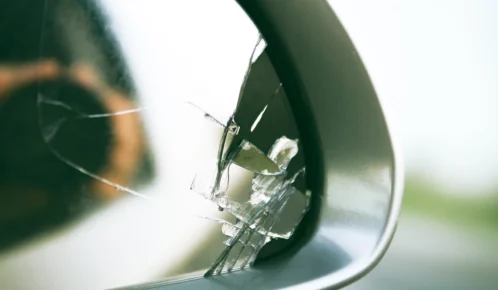Josh Rudolfi represented a University of Chicago actor in appellate court after the actor injured his left shoulder and arm during a performance of Porgy and Bess. The actor was portraying the character of Porgy, a physically disabled adult, in the employer’s production of the opera. He testified that portraying Porgy required that he spend “most of the performance sitting on [his] left hip and dragging [himself] around stage with [his] upper body, primarily [his] left arm.” During his June 25, 2011, performance, at the beginning of the second act, he “felt a pop and felt pain” as he dragged himself with his left arm from one section of the stage to another.

The employer, the University of Chicago, was appealing an earlier decision of the circuit court of Cook County that confirmed the unanimous decision of the Illinois Workers’ Compensation Commission (Commission), in favor of the claimant, actor Todd Kryger. The appellate court affirmed the decision of the circuit court in favor of Rudolfi’s client, Kryger.
Click here to read the decision of the Appellate Court of Illinois’ First District _______________
The court analysis and conclusion appear below:ANALYSIS
The employer raises the following three issues on appeal: (1) whether the Commission’s finding of a causal relationship between the work accident and the claimed shoulder condition was contrary to the manifest weight of the evidence; (2) whether the Commission incorrectly relied on “a flawed causal connection opinion;” and (3) whether the Commission’s permanency award is inconsistent with awards to similarly situated petitioners, and is therefore contrary to section With regard to the first issue raised by the employer, we begin with our standard of review. “It is well settled that in workers’ compensation cases it is the function of the Commission to decide questions of fact and causation, to judge the credibility of witnesses and to resolve conflicting medical evidence.” Teska v. Industrial Comm’n, 266 11 A reviewing court will not overturn findings of the Commission unless the findings are against the manifest weight of the evidence. Id. Findings are against the manifest weight of the evidence only when an opposite conclusion is clearly apparent. Id. at 742. A reviewing court considers “whether there is sufficient evidence in the record to support the Commission’s finding, not whether [the reviewing court] might have reached the same conclusion.” Metropolitan Water Reclamation Dist. of Greater Chicago v. Illinois Workers’ Compensation
With regard to the first issue raised by the employer, we begin with our standard of review. “It is well settled that in workers’ compensation cases it is the function of the Commission to decide questions of fact and causation, to judge the credibility of witnesses and to resolve conflicting medical evidence.” Teska v. Industrial Comm’n, 266 11 A reviewing court will not overturn findings of the Commission unless the findings are against the manifest weight of the evidence. Id. Findings are against the manifest weight of the evidence only when an opposite conclusion is clearly apparent. Id. at 742. A reviewing court considers “whether there is sufficient evidence in the record to support the Commission’s finding, not whether [the reviewing court] might have reached the same conclusion.” Metropolitan Water Reclamation Dist. of Greater Chicago v. Illinois Workers’ Compensation
In this case, the employer first argues that “the record clearly demonstrates” that the claimant “sustained an acute injury to his elbow” and that the claimant “made no mention of any shoulder issues until two months later.” According to the employer, the first mention of a shoulder issue came on “August 29, 2011, more than two months after his June 25, 2011, work injury.” It is simply not true that the claimant complained of an injury to only his elbow. As explained above, on cross-examination at the arbitration hearing, the claimant testified extensively about reporting his injury. He was asked if on June 27, 2011, he had told the medical providers who treated him that he heard a pop in his elbow; he testified, “I don’t recall if I had said elbow or if I had said bicep.” He subsequently disputed that he had complained of pain only in his left elbow, testifying, “I was complaining of pain in my lower bicep,” and “I was telling them it was hurting here in my bicep.” His counsel then asked that the record reflect that the claimant was indicating, to which the arbitrator responded that the claimant “was indicating the upper part of the bicep towards the lateral side of the elbow and above, so it’s the bicep from what he’s indicating.” The claimant testified that he agreed he complained of pain in his left elbow, but when asked a subsequent question, reiterated that “I was complaining of lower bicep pain near the elbow” and that “I wasn’t saying my elbow was hurting. I was letting them know my bicep was hurting.” Opposing counsel then asked, “So if the medical records indicate that you were complaining of left elbow pain, you would disagree with that?” The claimant testified, “Yes, I guess so.” However, the medical records in fact substantiate the testimony of the claimant.
The records from the claimant’s June 27, 2011, visit to the University of Chicago Hospitals Occupational Medicine department indicate that the claimant’s “chief complaint” was “an injury to his left elbow” that caused pain “radiating up the arm to his neck and below the elbow to his hand.” In addition, when asked if the “mechanism of injury, that of dragging himself across a stage,” was consistent with his diagnosis, Dr. Silver testified, “Absolutely. That can do tremendous damage to the rotator cuff.” Dr. Silver explained that his opinion on the causal connection between the accident and the injury was also partially based on the fact that the claimant had no prior history of shoulder problems, and that nothing else explained the injury. He testified that on July 25, 2012, he performed surgery on the claimant and that his findings were “just what we thought,” with the claimant having “rotator cuff impingement with partial thickness tearing of his rotator cuff which we viewed surgically.” He explained again the reasons why the need for the surgery was causally related to the claimant’s work injury and noted again that there was “no previous history of any dysfunction of his left shoulder.”
We reiterate that it is axiomatic that “it is the function of the Commission to decide questions of fact and causation, to judge the credibility of witnesses and to resolve conflicting medical evidence.” Teska v. Industrial Comm’n, 266 Ill. App. 3d 740, 741 (1994). Our duty is to review the evidence and determine if an opposite conclusion is clearly apparent. We find that an opposite conclusion is not clearly apparent from the evidence in this case. The claimant presented ample evidence that supports the Commission’s finding of a causal relationship between the work accident and the claimant’s injury. Accordingly, the Commission’s decision is not against the manifest weight of the evidence and we will not disturb it.
The employer next argues that the Commission relied “on a flawed causual connection opinion,” and that such reliance “is contrary to law.” In support of this proposition, the employer contends that “Dr. Silver’s opinion suffered from an unsupportable assumption, namely that [the claimant] suffered an immediate onset of shoulder pain that continued unabated from the date of accident.” For the reason explained above, we have already rejected, as did the arbitrator and the Commission, the employer’s contention that the initial injury and pain was limited to the claimant’s elbow. Moreover, Dr. Silver vigorously contested the idea that there was an inconsistency with regard to reports of ongoing pain since the accident, because “[t]hese kind of things with a rotator cuff tear like this, it can temporarily improve and then worsen again. It’s very common. It waxes and wanes. It’s not unusual at all. So it’s consistent with what I found.” When counsel tried to press him on the issue, Dr. Silver testified, “You’re misunderstanding. What happens is you could have good days and bad days.” He reiterated that good days and bad days and variations in pain were quite common with an injury such as that suffered by the claimant. The issue the employer now raises was fully aired before the arbitrator, and the Commission. The Commission was entitled to find Dr. Silver more credible on the issue than Dr. Sagerman, as Dr. Silver’s opinion was not flawed and was in no other way deficient as a matter of law. The Commission’s finding is not against the manifest weight of the evidence, and we decline to disturb it.
The employer’s final argument on appeal is that the Commission’s permanency award is inconsistent with awards to similarly situated petitioners, and is therefore contrary to section 19(e) of the Act. However, the employer has cited no authority, and presented no coherent argument, in support of the proposition that the Commission’s permanency award is inconsistent with awards to similarly situated petitioners. Accordingly, the employer has forfeited consideration of this claim. (argument must contain the contentions of the appellant, the reasons therefor, and the citation of authorities; points not argued in an opening brief are forfeited and shall not be raised in the reply brief, in oral argument, or in a petition for a rehearing); see also, e.g., Ameritech Services, Inc. v. Illinois Workers’ Compensation Comm’n, 389 Ill. App. 3d 191, 208 (2009) (when party fails to support argument with citation to authority, party has forfeited claim on appeal). Forfeiture notwithstanding, we agree with the claimant that the Commission’s decision on this point is not against the manifest weight of the evidence presented to the Commission, and therefore must be affirmed.
CONCLUSION
For the foregoing reasons, we affirm the judgment of the circuit court, which confirmed the Commission’s unanimous decision.Affirmed.



